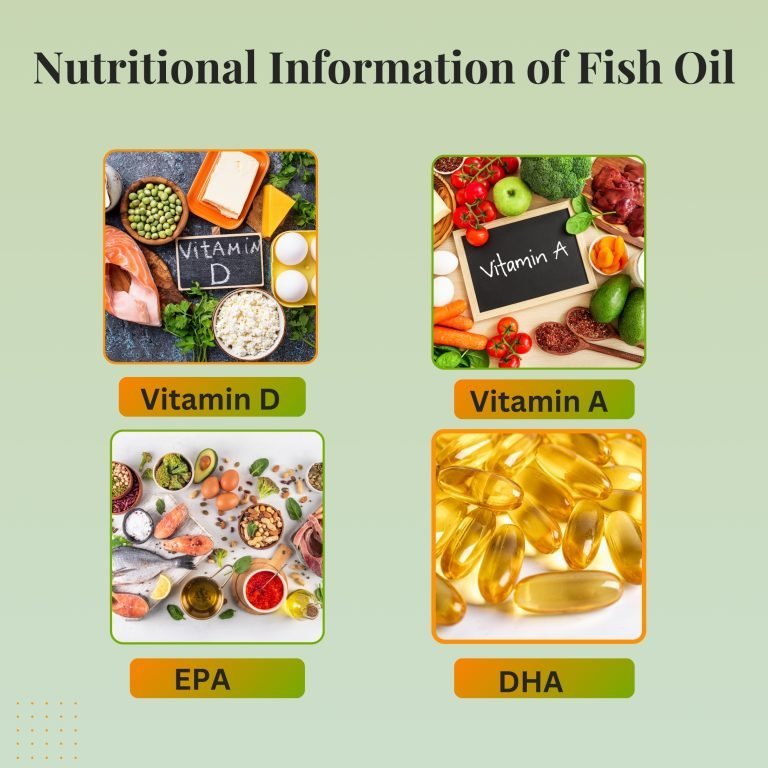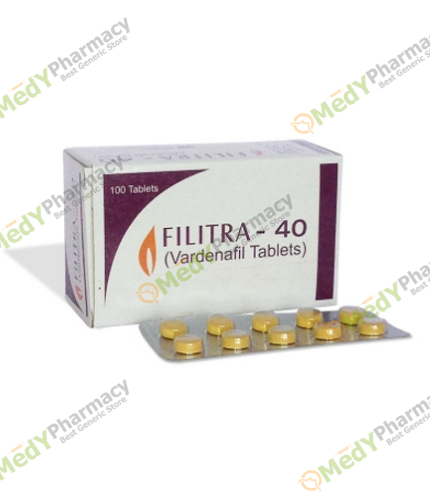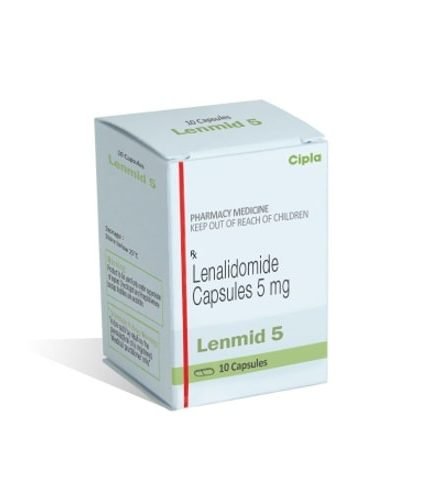Introduction:
We live in a time of false information. We frequently must consume something that many people claim is very beneficial to our health. But in practice, it might not be good for our health at all. Likewise, we believe that supplements containing fish oil are quite beneficial for improving our bodies.
It’s even often thought of as a powerful substitute for Vardenafil tablets. Nevertheless, no definitive research has been done to support these claims.
We’ll talk about why guys may not benefit from using fish oil supplements. We will talk about the many threats it can provide to us to have a better understanding of it. This may motivate us to restrict our consumption of these medicines.
This dietary supplement has been enhanced with omega-3 fatty acids. According to research, it may have several health advantages, including those unique to men, as it may support erections and sexual wellness.
Men may take proactive steps to ensure they are getting enough omega-3 fatty acids, even if they don’t eat oily fish on a regular or seldom basis.
The prospective advantages and disadvantages of fish oil for males are examined in this blog. Additionally, it recommends methods to raise omega-3 levels, such eating more fish, taking supplements of fish oil, or eating foods enriched with omega-3.
This is a supplement aisle sensation that is believed to offer several heart health advantages.
In the worst-case scenario, these medications may raise your risk of stroke, and at best, they are unlikely to contribute much to your health.
What Is Fish Oil?
The tissues of fatty fish, including herring, mackerel, salmon, and tuna, are used to make this oil. After the fish is cooked, it is pressed, and the oil and the extracted fluid are separated.
Half a century ago, Danish researchers discovered that certain Inuit groups had reduced heart disease rates. Because they ate a lot of fatty fish, researchers thought it was the cause. The researchers believed that the decreased prevalence of heart disease was due to the omega-3 fatty acids found in fatty fish, which are great providers of long-chain omega-3 fatty acids.
Recent research has demonstrated the beneficial effects of omega-3 fatty acids on the heart and blood vessels. The greatest sources of omega-3 fatty acids are fish, particularly cold-water fatty fish. For adults who consume 2,000 calories a day and are not pregnant or nursing, the Dietary Guidelines for Americans suggest 8 ounces of seafood per week.
Fish, particularly fatty fish, should be consumed in two 3-ounce portions per week. A deck of playing cards is roughly the size of a 3-ounce portion.
There is no optimal time of day to consume supplements containing fish oil. Nonetheless, there is evidence that when omega-3 fatty acids are taken with a meal that contains dietary fat, they are more efficiently absorbed.
This page covers fish oil dosage, when to take it, and any potential health advantages and disadvantages.
There Is Insufficient Proof to Establish Its Effectiveness
A lot of individuals claim that these supplements have a lot to offer, but none of them have been validated yet.
Patients who have taken them have had some advantages in managing conditions such as heart difficulties and other disorders.
There isn’t any concrete evidence, though, that the patients’ healing or other advantages were brought about by their use of fish oil.
A person with underlying problems may be in danger due to inadequate supplement knowledge, according to many recent studies.
A patient who has heart-related problems may become more distressed as a result. Your body will be negatively impacted, causing you to become distressed and reliant on sildenafil, such as Zudena 100 mg tablet.
To reduce triglyceride levels, the FDA has authorized several fish oil products as prescription drugs. There is a supplement version of this as well. It is not possible to utilize these supplements in place of prescription medicines since they do not contain the same amount of fish oil.
The majority of these applications are not well supported by research, however, some supplements are occasionally used for mental and cardiac health.
Nutritional Information of Fish Oil

This is mostly recognized for having a high concentration of omega-3 fatty acids (EPA and DHA), but it offers very few other nutrients.
- Calories: 123
- Protein: 0 grams
- Fat: 13.6 grams
- DHA: 0.573 grams
- EPA: 0.853 grams
- Carbohydrates: 0 grams
- Fiber: 0 grams
- Sugar: 0 grams
It is crucial to make sure that you are getting enough omega-3 fatty acids, particularly in light of the Western diet that frequently replaces them with other fats, which can cause health problems.
GNC is a dependable supplement that may help you reach your omega-3 requirements, particularly if you have trouble eating enough fish.
- Vitamin D
As not all fish oils are naturally high in vitamin D, make sure to read the label to see whether the supplement includes a sufficient quantity of the vitamin.
If you live in a region with little sun exposure, it may be helpful to combine fish oil with other foods or pills that are high in vitamin D for optimal benefits.
Even if other fish oils, including those from sardines, mackerel, or salmon, may have lower vitamin D content, they still add to the total intake.
- Vitamin A
Vitamin A is essential for several body processes, including skin, immune system, and visual health. Both plant and animal sources can provide it, and to prevent toxicity or insufficiency, it must be consumed in proportionate proportions. Pay attention to the levels of vitamin A in supplements if you’re thinking about taking them.
Preformed vitamin A (retinol), which the body may use directly, is abundant in fish oil, especially cod liver oil. It may help you get the recommended amount of vitamin A each day. Since fish oil also contains significant amounts of omega-3 fatty acids, it’s crucial to watch how much you consume because taking too much vitamin A via supplements can be hazardous.
- EPA
These are the main sources of this omega-3 fatty acid, while certain algae also contain trace quantities of it. EPA has been shown to have several health advantages, including for brain function, inflammation reduction, and heart health. Because it and DHA are both significant omega-3s with different but overlapping functions in the body, they are frequently cited together.
A potent omega-3 fatty acid, EPA has several health advantages, especially for heart health, cognitive function, and inflammation control. Consuming foods high in EPA, such as fatty fish, or taking supplements can offer these health advantages, particularly if you want to promote cognitive or cardiovascular health.
- DHA
Particularly crucial for memory, learning, and cognitive function, DHA is a necessary part of brain tissue. In addition to potentially helping with diseases like Alzheimer’s, it is thought to help prevent the cognitive loss that comes with age.
DHA supports the fetus’s and early children’s brain and ocular development during pregnancy and infancy.
For these health advantages, people frequently take fish oil supplements high in DHA. However, it’s wise to see a healthcare provider before beginning any supplementation, particularly if you currently have any medical concerns.
Supplemental Fish Oil May Be At Risk
In one way or another, the majority of these supplements are affected. They may include substances and chemicals that are harmful to the body. Its consumption will simply raise our health risks.
Dioxin and mercury have been discovered within them in certain investigations. The human body is not suited for either of these components. It may result in organ failures and other health problems.
Some of these online-sold medications have previously been confirmed to contain biphenyls. These items may also have an impact on your personal life. Many of the guys who are more physically active are dealing with problems that force them to use Tadalafil.
Over time, taking such supplements could be harmful to various bodily processes. Your body will become weaker and more prone to major health problems as a result.
How Does Fish Oil Work?
Fish oil’s omega-3 fatty acids are potent anti-inflammatory agents. Heart disease, immunological disorders, arthritis, and many other chronic illnesses are associated with inflammation. By lowering the body’s synthesis of pro-inflammatory chemicals, fish oil aids. This can aid in the treatment of ailments like asthma, inflammatory bowel disease, and joint discomfort.
The immune system may be modulated by this. Omega-3 fatty acids have anti-inflammatory properties that can help regulate immune responses, which is advantageous for controlling autoimmune diseases as well as avoiding infections.
In order to support several bodily processes, such as lowering inflammation, promoting heart and brain health, and enhancing general well-being, this works by supplying vital omega-3 fatty acids.
Cell fluidity and function are enhanced by the integration of DHA and EPA into cell membranes. This promotes improved organ function and improves cell-to-cell communication, especially in the heart and brain.
Omega-3 fatty acids can influence the synthesis of eicosanoids, which are signaling molecules that impact immunological responses, blood coagulation, and inflammation.
Because of their high bioavailability, the omega-3s in fish oil are readily absorbed by the body. The phospholipid or triglyceride form of fish oil is more readily absorbed than the synthetic form, like ethyl ester omega-3s.
List of Possible Benefits

- Sexual Health
It has been demonstrated that this enhances blood circulation, which is essential for healthy sexual function. Function and arousal depend on adequate blood flow.
By increasing blood flow to the vaginal region and relaxing blood vessels, this may improve sexual excitement and function.
This can improve circulation and cardiovascular health, which are important for men’s erectile function and sexual performance, by preventing the accumulation of arterial plaque.
Endometriosis in women and erectile dysfunction (ED) in men are two sexual health conditions that are associated with chronic inflammation. Enhancing sexual performance and lowering systemic inflammation are two benefits of omega-3 fatty acids found in fish oil.
For male fertility and sexual function, prostate health is essential. Prostate-related problems like prostatitis and benign prostatic hyperplasia (BPH) may be made less likely by omega-3 fatty acids, and some research indicates that they may also lessen the risk of prostate cancer.
This supplement has anti-inflammatory, hormonal-regulating, and circulatory properties that make it a useful tool for improving sexual health and fertility. It can enhance the reproductive health of both men and women by improving blood flow, hormone balance, and inflammation reduction.
- Mental Health
In addition to lowering the symptoms of anxiety, sadness, and ADHD, this supplement may also aid enhance cognitive performance. Because of its capacity to lower inflammation, regulate neurotransmitter levels, and improve brain function, it is a useful tool for promoting emotional health. Nonetheless, it’s crucial to see a medical expert to ascertain the right dose and make sure it suits your mental health requirements.
Although this is usually safe, excessive dosages may cause mild adverse effects like nausea, gastrointestinal distress, or a fishy aftertaste. Consult your doctor if you’re on blood thinners since fish oil may have a little impact on blood thinner impact.
Stress’s negative effects on the body and mind are lessened as a result. Numerous mental health conditions, such as anxiety, depression, and cognitive decline, can be brought on by prolonged stress. By reducing inflammation and cortisol, fish oil can improve the body’s ability to handle stress.
Particularly helpful for disorders like bipolar disorder, omega-3 fatty acids can help control mood swings. According to certain research, fish oil may help stabilize moods and lessen the occurrence and severity of mood swings.
- Heart Health
The advantages of fish oil for heart health are numerous and include decreasing blood pressure, lowering triglycerides, lowering cholesterol, and avoiding heart attacks and strokes. Cardiovascular disease risk can be decreased by omega-3 fatty acids’ vital function in lowering inflammation and enhancing blood vessel health. Adding fish oil to your daily regimen might be a potent strategy to safeguard and preserve heart health.
Omega-3 fatty acids may help people with heart failure by lowering hospitalization rates and enhancing their quality of life, according to some research. Omega-3 fatty acids promote healthy circulation by reducing artery constriction and enhancing the function of the endothelial cells that line blood vessels.
Fish oil may lessen the risk of deadly arrhythmias that can result in sudden cardiac arrest by achieving electrical stability in the heart.
By decreasing the stickiness of platelets, omega-3 fatty acids help avoid excessive clotting and the blockage of blood vessels caused by blood clots.
- Eye Health
Because of its high DHA and EPA concentration, fish oil is essential for preserving eye health. Fish oil has a number of advantages, ranging from easing the symptoms of dry eyes and lowering inflammation to promoting retinal function and preventing age-related macular degeneration (AMD). Omega-3 fatty acid consumption on a regular basis can support long-term eye health and perhaps lower the chance of developing major eye diseases including cataracts and diabetic retinopathy.
In order to ascertain the appropriate dosage and make sure that fish oil is the best choice for your particular requirements, it is always a good idea to speak with a healthcare provider before incorporating it into your routine for eye health.
Select supplements containing fish oil that have been purified to eliminate impurities such as heavy metals and mercury. Seek out goods whose purity and quality have been independently verified.
The concentration of EPA and DHA in certain fish oils is higher than in others. A supplement with a higher dose of omega-3s in fewer capsules might be what you want to choose.
Seek out sustainably sourced fish oil, such as that from wild fish or from businesses that respect the environment.
Potential Risk Factors for Prostate Cancer
Taking fish oil pills indicates that we are consuming too much omega-3 fatty acids. Overuse of them can raise hazards even if they could have some advantages.
There will be a higher chance of developing cancer cells inside your prostate. Yes, men’s prostate cancer can be caused by an overabundance of these compounds. Numerous investigations have unequivocally demonstrated this.
Accordingly, men who take more fish oil supplements than necessary run the risk of developing cancer. These are legitimate worries for everyone. Consuming it should thus be done with prudence.
One of the most prevalent malignancies in males is prostate cancer, and although the precise origins of the illness are unknown, several risk factors have been shown to raise the chance of getting it. While some of these elements are out of an individual’s control, others are.
The risk of prostate cancer may be elevated by exposure to certain substances, such as pesticides or herbicides. These substances may influence hormone levels and may encourage the growth of cancer by acting as endocrine disruptors.
There is no one cause of prostate cancer, although several lifestyle, environmental, and genetic factors can contribute to the disease. Although they can raise the risk, many of the previously mentioned factors do not ensure that prostate cancer will develop. While some risk factors—like age, race, and family history—cannot be changed, many others—like diet, exercise, and keeping a healthy weight—can be changed to possibly lower risk.
Perhaps Useful for Fish Oil
An operation to widen a blood artery that has been constricted or obstructed. By taking fish oil orally for at least three weeks before an angioplasty and for one month following, the risk of blood vessel re-blockage can be reduced by up to 45%.
Weight loss that occurs involuntarily in severely sick persons. For certain cancer patients, taking a large oral dosage of fish oil appears to delay weight loss. Fish oil does not appear to have this impact at low dosages.
It appears that taking fish oil helps cyclosporine users avoid kidney damage. In patients on cyclosporine who have recently rejected a kidney transplant, this also appears to improve kidney function.
This can help with painful periods and lessen the need for painkillers for menstrual cramps, whether taken by itself or in combination with vitamin B12 or E.
Nausea and vomiting are brought on by an intestinal infection. Pregnant women who take fish oil appear to have a lower chance of experiencing nausea and vomiting due to intestinal infections.
A decreased risk of heart failure has been associated with consuming more fish oil through diet. One to two portions of non-fried fish should be consumed per week. The effectiveness of fish oil supplements in preventing heart failure is too soon to tell. But for those who already have heart failure, taking fish oil supplements orally may lower their chance of dying or being admitted to the hospital.
For those with moderate to extremely high blood pressure, oral fish oil appears to have a modestly lowering effect. Whether it benefits persons with mildly elevated blood pressure or those currently using blood pressure-lowering drugs is unclear.
Prescription Fish Oil Has Additional Risks
There are numerous contradictory and contentious facts to wade through about prescription fish oil.
The view held by many cardiologists is that there is insufficient data to support the advantages of prescription fish oils. To be able to strongly advise using these products, we need to do further research.
People who took a pure-EPA fish oil tablet had a 25% lower risk of cardiovascular illness than those who took a placebo, according to a big study.
That seems like fantastic news. The placebo, however, was mineral oil, which has subsequently been demonstrated to have some detrimental effects on the cardiovascular system, such as inflammation.
It could make the drug appear good if the placebo is having negative effects.
- Heart attack
- Stroke
- Death
Researchers discovered that fish oil had no positive effects and increased the risk of atrial fibrillation, an arrhythmia that can result in a stroke, which led to the early termination of the study.
Since statins are the only effective treatment for people at high risk for heart disease, the advantages of pure EPA fish oil may occasionally exceed the risks, “but I prescribe it very sparingly.”
Side Effects of Fish Oil Supplements
- Low Blood Pressure
One of the many prevalent reasons for low blood pressure is a variety of factors. It may be controlled with lifestyle modifications and frequently doesn’t require treatment, but occasionally, it might result in more severe health issues. Maintaining a healthy blood pressure level and alleviating symptoms can be achieved by determining the underlying reason and making lifestyle or medication adjustments.
Iron, folate, and vitamin B12 deficiency can all hinder the body’s ability to produce enough healthy red blood cells, which can lower blood pressure. When the circulatory system grows to support the developing fetus throughout pregnancy, blood pressure tends to drop, particularly in the first and second trimesters.
- Acid Reflux
The disorder known as acid reflux occurs when bile or stomach acid irritates the food pipe, causing symptoms like regurgitation or heartburn. It happens when the muscle at the base of the esophagus, known as the lower esophageal sphincter, isn’t working correctly. In normal circumstances, the LES opens to let food enter the stomach and then shuts to stop the stomach contents from rising again. Acid reflux is the result of stomach acid flowing back into the esophagus when the LES is weak or relaxes improperly.
The common ailment known as acid reflux can cause anything from minor discomfort to a major health problem. More severe cases may necessitate medication or even surgery, although mild cases can frequently be managed with lifestyle changes. It is crucial to collaborate with a healthcare professional to determine the best course of action for you if you are experiencing chronic symptoms of acid reflux.
- Diarrhea
The symptoms of diarrhea include loose, watery, or frequent feces. Several things might cause it, but it is frequently an indication of a digestive system infection or inflammation. Diarrhea is often transient and goes away on its own, but if it lasts for a long time, it may indicate a more serious physical illness.
A frequent problem, diarrhea can be minor and transient or severe and long-lasting. Diarrhea usually goes away on its own, but if it doesn’t go away or if there are serious symptoms, you should consult a doctor. Depending on the underlying reason, the usual course of treatment includes medication, dietary modifications, and hydration.
- Headache
All ages are affected by headaches, which are among the most prevalent medical problems. They can be caused by a number of factors and range in severity. Better management of headaches may be achieved by being aware of their types, causes, and available treatments.
Pulsing or throbbing discomfort, typically on one side of the head. Nausea, vomiting, and light and sound sensitivity may accompany them. Aura, or visual disturbances like flashing lights or blind patches, can also be caused by migraines before the headache starts.
- Fishy Smell
It can be an unpleasant and frequently alarming sign to have a fishy smell in your breath, urine, or body. There are several causes for it, and figuring out what causes it is crucial to dealing with it effectively. Some typical causes of fishy odors are listed below, along with possible fixes or actions to take.
Unusual scents, such as a fishy smell, might arise from waste products that accumulate in the body due to malfunctioning kidneys. Uremic fetor, commonly known as fishy breath, is a bad or ammonia-like stench that can occasionally be caused by kidney failure.
Numerous things, from food choices to illnesses like trimethylaminuria or bacterial vaginosis, can contribute to a fishy odor. Certain causes may need medical attention, while others are benign and can be treated with dietary or hygiene adjustments.
- Atrial Fibrillation
One kind of arrhythmia, or irregular heartbeat, is atrial fibrillation, in which the two top chambers of the heart pulse in unison with the lower chambers. This causes the pulse to become erratic and frequently fast. Episodes of AFib can last anywhere from a few minutes to many hours, or it can be chronic and require therapy to return to a normal rhythm.
Although it is a dangerous illness, atrial fibrillation is treatable. Understanding the signs and risk factors is crucial for early detection. Even if AFib doesn’t usually show symptoms, it raises the risk of heart problems and stroke. Seeking medical assistance is crucial if you suffer from shortness of breath, dizziness, or abnormal heartbeats.
- Immune Function
The term “immune function” describes the body’s capacity to defend itself against dangerous bacteria, viruses, fungi, and other outside invaders, as well as aberrant cells like cancer cells. The intricate network of cells, tissues, and organs that make up the immune system cooperates to protect the body and preserve health.
These signaling proteins assist to activate other immune cells, control inflammation, and facilitate communication between immune cells, all of which help to coordinate the immune response.
A class of proteins that destroys infections in conjunction with antibodies. They can alert immune cells to react, or they can go straight after and destroy germs.
- Increased Bleeding
Several illnesses, including autoimmune diseases, clotting factor deficits, platelet problems, and drug side effects, might be indicated by increased bleeding. For an accurate diagnosis and treatment plan, it’s critical to get medical help if you suffer from excessive or unexplained bleeding. By treating the underlying cause, such as addressing dietary deficiencies or modifying medication, bleeding can be controlled, and consequences can be avoided.
Chemotherapy and radiation are two cancer therapies that can inhibit bone marrow and reduce the synthesis of platelets and other blood components, which might lead to bleeding tendencies.
Supplemental Fish Oil Associated With Sperm Health?
Indeed, studies indicate that taking extra fish oil may improve male fertility and has been linked to sperm health.
Sperm cell membranes depend heavily on omega-3 fatty acids, particularly DHA. According to research, DHA contributes to the preservation of sperm cell membrane fluidity and elasticity, which is critical for motility. One of the key components of fertility is increased sperm motility.
Sperm health can be enhanced by taking fish oil, which is high in omega-3 fatty acids. This can reduce oxidative stress and improve sperm motility, morphology, and DNA integrity. These effects could increase the fertility of men. However, it’s crucial to speak with a healthcare professional before beginning any new supplement regimen, especially for people receiving reproductive treatments or those with certain medical issues.
Male Blood Thinning Risk Is Higher
A major problem is blood thinning. Blood that is losing its viscosity will not be able to keep blood pressure levels within normal ranges. Furthermore, it may raise external hazards for an individual since frequent injuries may result in severe bleeding.
Furthermore, blood thinning will have a direct impact on the quality of your erection. You, a male, will have to take sildalist for a long time as a result of this since it will lower the quality of blood flow in the penis.
For men who are already taking blood thinners, these problems are more severe. Therefore, you should speak with your doctor before choosing to take fish oil supplements. You can afford to have them, and he can advise you on the appropriate dosage. These are all important precautions against significant disruptions.
Risks Increase When Using Fish Oil Supplements When Drugs Interact
Certain medications are crucial since men frequently utilize them to deal with their problems. Among these are medications frequently used to control elevated blood pressure. Anticoagulants are frequently used by men as well to treat physical problems. You might need to stop taking pills that include fish oil.
When used to treat serious conditions, these supplements have a strong reaction with medications. Aside from being major problems, they are also rather prevalent among men.
Combining these supplements with such medications will not work well for your body and may cause problems. Instead of reducing your discomfort, these exchanges will make it worse. Therefore, it is crucial to avoid it.
Using drugs for which there is no solid proof of their beneficial effects is wrong. Supplementing with fish oil for no apparent cause will also not benefit your health.
It will make you more distressed and reliant on additional pills. Medypharmacy sells powerful medications to treat your physical ailments.
Avoiding actions that cause such problems in the first place is more important, though. Avoiding fish oil pills is the preferable course of action for males.
























